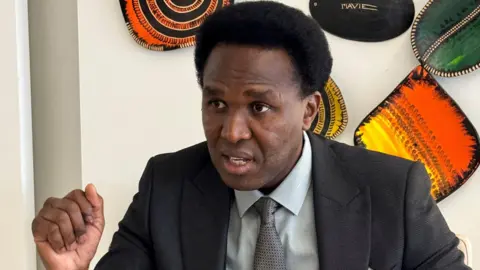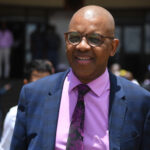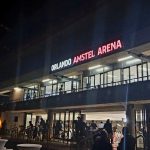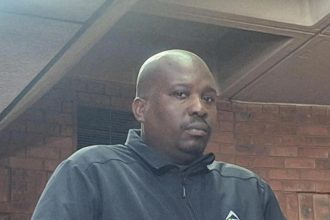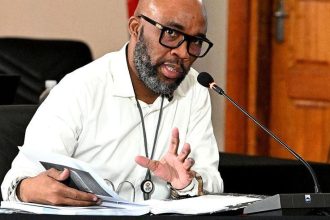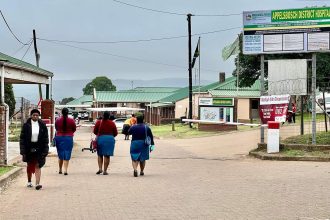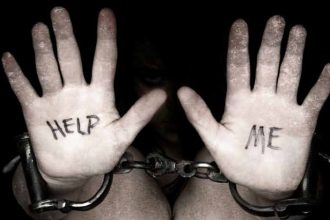Mozambique’s opposition leader, Venancio Mondlane, has alleged an attempted assassination while in South Africa, where he sought refuge following a contentious October 9 election. In a social media video shared on Monday, Mondlane recounted his escape from would-be attackers, describing the harrowing experience of slipping through a back door in Johannesburg’s Sandton district, evading danger through a nearby hair salon, and fleeing with his family.
Mondlane Rejects Election Outcome, Calls for Protests
Mondlane, a prominent figure in Mozambique’s opposition, disputes the official election results, which awarded a significant victory to the ruling Frelimo party. The electoral authority declared that Frelimo’s candidate, Daniel Chapo, secured over 70% of the votes, a margin Mondlane contests. Despite Frelimo’s historic rule since the nation’s independence in 1975, Mondlane claims he won and has accused the electoral body of manipulation to keep the ruling party in power. Various opposition parties and election monitors, including the European Union, have echoed concerns, citing serious irregularities and procedural flaws throughout the election process.
Amidst ongoing unrest, Mondlane has been vocal, calling for protests against the disputed results. In a rallying message on social media, he encouraged citizens to march in the capital, Maputo, this Thursday, dubbing the day as “Mozambique’s freedom day.”
Rising Tensions: Deadly Protests and Restricted Internet Access
Following the announcement of the election results on October 24, protests erupted, with demonstrators challenging the legitimacy of the outcome. Human Rights Watch has reported a deadly response by security forces, resulting in at least 11 fatalities and more than 50 serious injuries among protesters. During the initial protests, authorities deployed tear gas and fired upon civilians in multiple cities, sparking outrage and condemnation from human rights groups.
Adding to the climate of unrest, authorities have implemented strict limitations on social media and internet access. Following the release of election results, a temporary internet blackout ensued, with access to social media restricted again on October 31. NetBlocks, a London-based internet monitoring organization, confirmed the disruptions, attributing them to government action aimed at limiting online organization and dissent.
Allegations of Targeted Assassinations
Mondlane’s claims of an assassination attempt come on the heels of a tragic incident involving his close associates. On October 19, his lawyer and an aide, who were preparing to legally contest the election results, were fatally shot. Mondlane has since stated that their deaths were politically motivated, expressing fears that he could be targeted next. Despite his claims, South Africa’s foreign ministry reported no record of his presence in the country and urged that any incident should be formally reported to the police.
Widespread Criticism of Election Integrity
Mozambique’s recent elections have drawn widespread criticism from both local and international observers. The Centre for Public Integrity, an anti-corruption organization in Mozambique, has condemned the elections as the most fraudulent in over two decades. Observers noted significant irregularities in voter rolls, vote counting, and transparency in various stages of the electoral process. The European Union and other international bodies have also highlighted concerns, reporting inconsistencies that they argue compromised the legitimacy of the electoral process.
Public Sentiment and the Road Ahead
The situation in Mozambique remains tense as the opposition, led by Mondlane, calls for continued resistance against what they see as an illegitimate government. This week’s planned protests could escalate the already volatile atmosphere as citizens demand accountability and transparency. As Mozambique’s political crisis unfolds, regional stability and the prospect of fair governance remain uncertain, with citizens and international observers watching closely.

